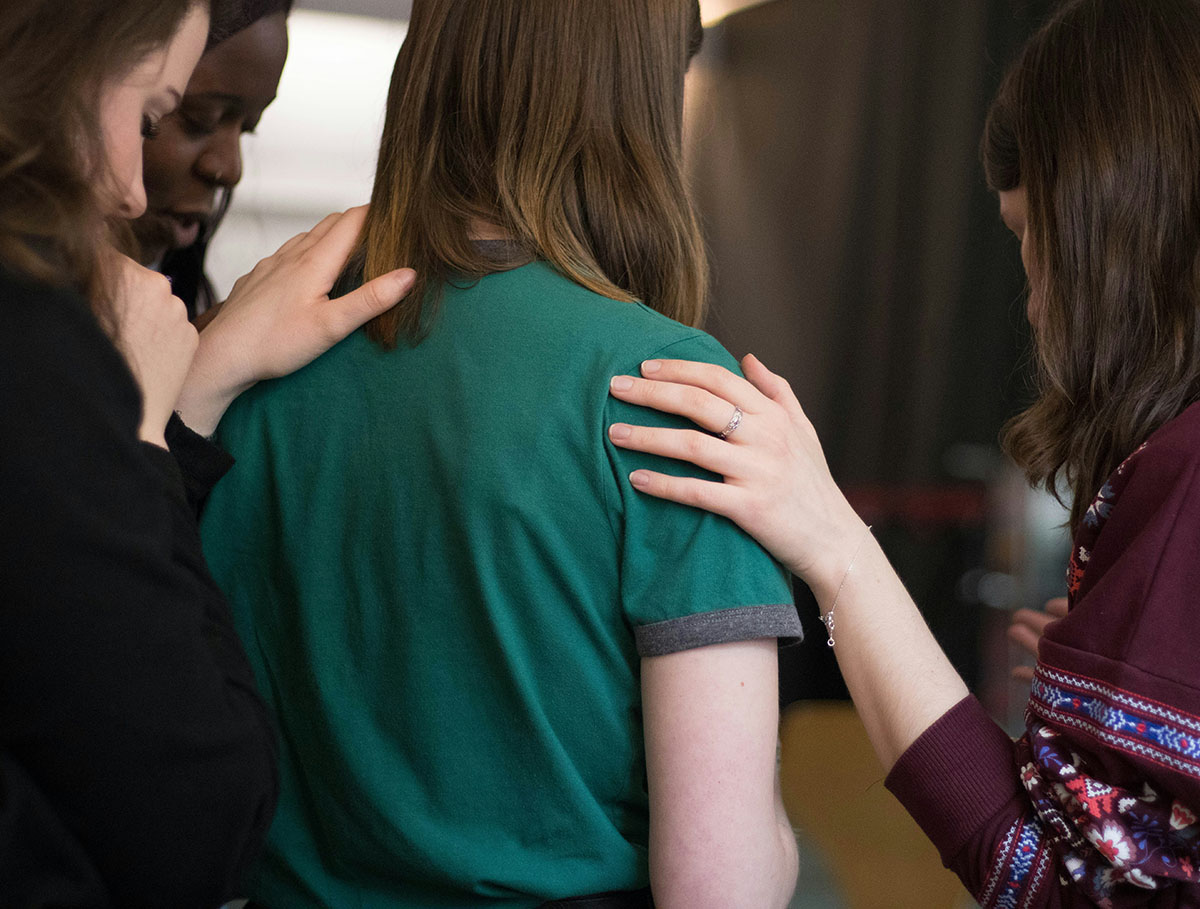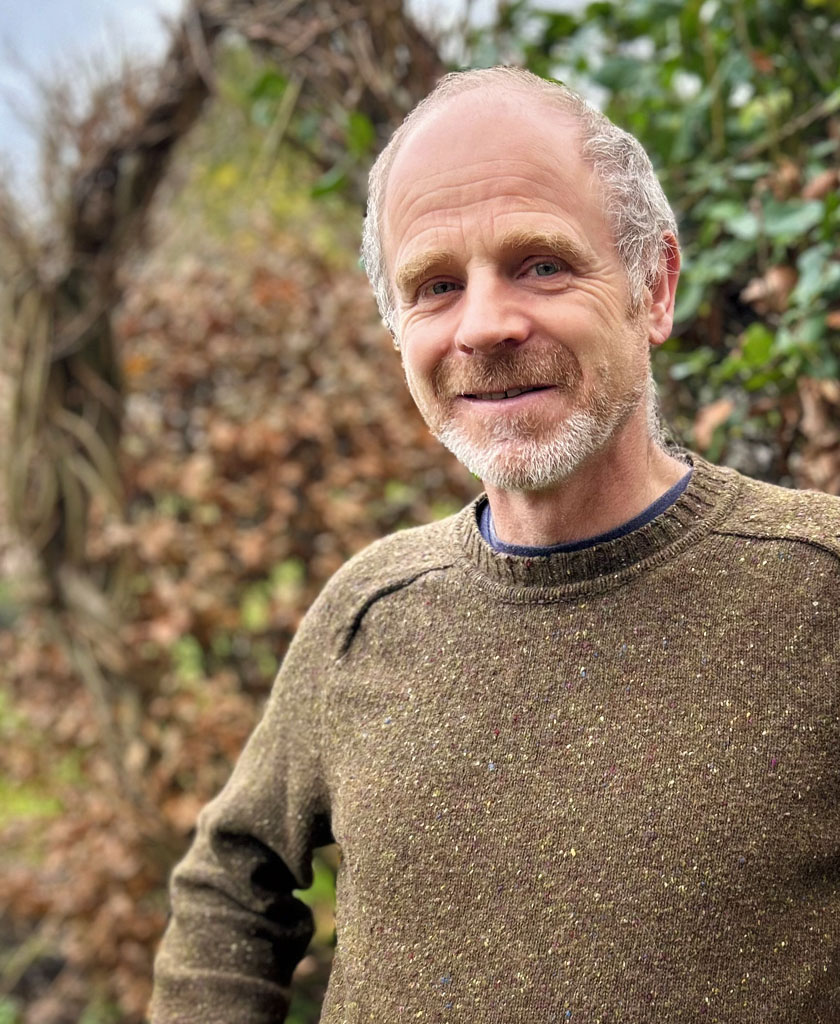Pesso Boyden System of Psychotherapy

Pesso Boyden System of Psychotherapy (PBSP) is an interactional, body-based therapy that enables the client to rescript past experiences in order to compensate for emotional deficits earlier in life.
In a PBSP session, known as a structure, the client is helped to become aware of their internal maps, formed early in their lives, which often limit present-day attitudes and cause unhelpful patterns of behaviour in our present. The unmet needs we carry from the past create problems when transferred into present-day contexts, such as our romantic relationships or work contexts. Within a structure, a resolution of these unmet needs is found through an emotionally satisfying experience. In a group setting, this can involve the support of members of the group who may take a role as the figures that were needed in the past.
❝ Healing is getting the freedom to create new meaning out of our lives and to let go of the meanings we created out of those earlier experiences when we had no choice in the matter ❞
(Gabor Mate)
As the impact of past traumatic events lessen, we can make new meanings for our lives which contain more pleasure, satisfaction and connectedness.
What Happens During The Session
In a structure, the client and therapist work collaboratively, with the client remaining in control of the therapeutic process, guided by the therapist. The client simply starts with the ‘here and now’ issue that leads them safely into the past experiences that need healing. This can happen either in a group or in a one-to-one session. Clients report feeling safe and supported during a session.
Neuropsychologist Professor Bessel van der Kolk, one of the world’s leading trauma experts, devoted a chapter of his acclaimed book, ‘The Body Keeps the Score’, to his experiences of working with Al Pesso, one of the founders of the method. At the conclusion of his first session he reports a significant body-mind event typical of Pesso psychotherapy, ‘Instantaneously I felt a deep release in my body – the constriction in my chest eased and my breathing became relaxed. The was the moment I decided to become Pesso’s student.’

❝ Instantaneously I felt a deep release in my body – the constriction in my chest eased and my breathing became relaxed. ❞ (Bessel van der Kolk)
Insights Into Pesso Boyden Therapy
By Peter Joscelyne
The first time I experienced Pesso Boyden Therapy was on a four-day residential retreat in 2016 with Juliet Grayson, who later became one of my teachers and mentors. Even though I’d experienced a number of different therapies, it was like nothing I had tried before, I saw how effective it was and I knew right away that I wanted to train in the method. The following year I embarked on the three-year training.
I’ve done so many workshops since then that I can’t remember what that first structure was about. What I do remember was how I felt afterwards; any feelings of anxiety had gone and I felt a relaxation in my body that I don’t remember feeling as an adult.
A structure is the name given to the PBSP client session which takes place for the individual within the group usually utilising some of the group members to create an interactional experience. It wasn’t just my structure, it was the powerful effect of observing other people working and playing roles in their structures. That’s part of the value of the group work, seeing our common humanity and often the resonances to our own process when we witness the vulnerability of others and their healing.
Some people bring something specific to work on, while others might start with whatever feeling arises for them there and then see where it leads. It’s often surprising where a structure takes us, as we discover new insights into ourselves through listening to the wisdom of our bodies rather than trying to work things out cognitively. Of course, we need both the insight that comes through connecting to our body’s feelings and the ability to make sense of it.

❝ We are made (genetically) to be able to be happy in an imperfect world that is endlessly unfolding and we are the local agents of that unfolding process. ❞ (Al Pesso)

Another aspect of the method is working to heal intergenerational trauma using a method Al Pesso termed ‘Holes in Roles’. Unconsciously as children, we sometimes try to fill the ‘holes’ in the family system by giving out our energy too soon to try to fix things. This has implications later on as we develop and then find it hard to ‘receive’ as adults, instead we often give out too much which leads to depletion and burn-out.
What people bring to Pesso Boyden groups is as diverse as people are and similar to what they might bring to one-to-one therapy. It’s a safe place to approach and work on childhood trauma. These are not necessarily what we might think of as big traumas (although they might be) but sometimes a number of events that may have occurred where your needs were not met. Some people work on early attachment wounds, times when our boundaries weren’t respected (in all the different forms, including sexual violation), preverbal issues, depression, anxiety, relationship problems, working safely with anger and as place to bring whatever is happening in your life right now. The groups provide a container to work deeply in a safe and supported way. What comes out of this is usually a greater sense of meaning, connection and belonging.
Pesso Boyden therapy offers the opportunity to heal the past and create a happier present and future.
